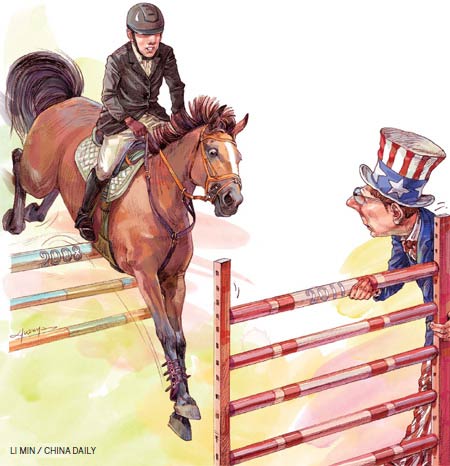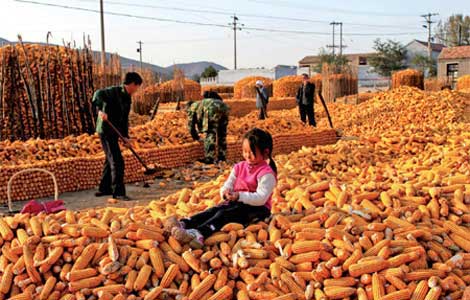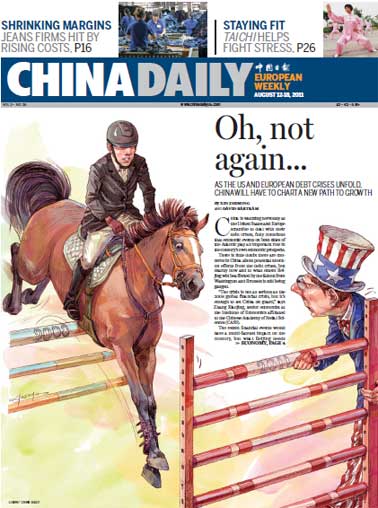Oh, not again...
Updated: 2011-08-12 11:25
By Xin Zhiming and David Bartram (China Daily)
As the US and European debt crises unfold, China will have to chart a new path to growth
 |
China is watching nervously as the United States and Europe scramble to deal with their debt crises, fully conscious that economic events on both sides of the Atlantic play an important role in the country's own economic prospects.
There is little doubt there are concerns in China about potential knock-on effects from the debt crises, but exactly how and to what extent Beijing will be affected by the fallout from Washington and Brussels is still being gauged.
"The crisis is not as serious as the 2008 global financial crisis, but it's enough to set China on guard," says Zhang Xiaojing, senior economist at the Institute of Economics affiliated to the Chinese Academy of Social Sciences (CASS).
The recent financial events would have a multi-faceted impact on the country, but what Beijing needs most is avoid churning out panic-driven short-term solutions; and accelerate economic restructuring to make the economy less vulnerable to external shocks, analysts say.
"The biggest impact on China is from weaker global growth caused by financial market turmoil," says Wang Tao, China economic research head of UBS Securities.
If the current uncertainties continue to evolve, the US economic recovery is set to slow, which, coupled with the weak euro zone economy, will affect the exports of China, the world's largest exporter.
"The most obvious way China will be affected is trade," says Keyu Jin, assistant professor of economics at the London School of Economics. "If the US and Europe are in a debt crisis, this will affect consumer spending and demand for exports from China, which will slow down Chinese exports."
It is quite clear that China is still very dependent on the shape of the American and European economies, says Gustaaf Geeraerts, director of the Brussels Institute of Contemporary China Studies. "It is true that they want to change their dependence on exports and want to stimulate domestic consumption, but, of course, this will take time. It is not something you can do with a click of the fingers."
Jonathan Story, emeritus professor of international political economy at INSEAD, adds: "There are worries in China because they know their huge foreign trade reserves will shrink when the dollar falls. Rebalancing the Chinese economy is an extremely long and arduous task, and I think in spite of the crisis, systems are going to continue to run and trade surpluses will keep on piling up."
There is near unanimity that Beijing will have to stimulate domestic consumption as a buffer against the economic vagaries of the global economic landscape but domestic issues are complicated by rising inflation and the increasing cost of importing strategic resources. While the 2008 stimulus package succeeded in maintaining a high growth rate, inflation has since soared, hitting 6.5 percent in July - mainly driven by food prices.
"I don't think recent events will accelerate China's move from exports to consumption. That takes long term structural force and isn't so easily impacted by policy changes," says Jin at the London School of Economics.
E-paper

My Chinese Valentine
Local businesses are cashing in on a traditional love story involving a cow herder and a goddess
Outdoor success
Lifting the veil
Allure of mystery
Specials

Star journalist leaves legacy
Li Xing, China Daily's assistant editor-in-chief and veteran columnist, died of a cerebral hemorrhage on Aug 7 in Washington DC, US.

Sowing the seeds of doubt
The presence in China of multinationals such as Monsanto and Pioneer is sparking controversy

Lifting the veil
Beijing's Palace Museum, also known as the Forbidden City, is steeped in history, dreams and tears, which are perfectly reflected in design.








